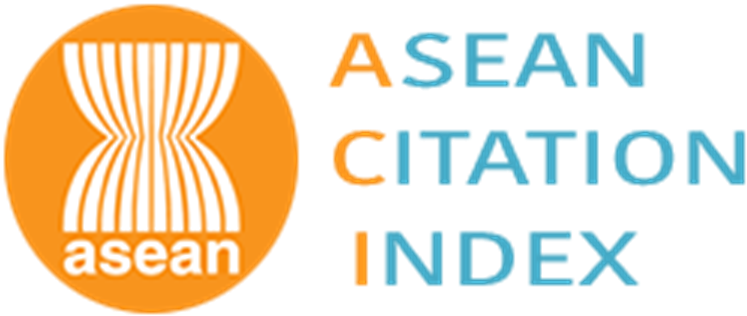ความรู้ความเข้าใจนโยบาย Thailand 4.0 ในจังหวัดเชียงใหม่และลำปาง
Thailand 4.0 Policy Perception among Residents in Chiang Mai and Lampang Provinces
Abstract
การวิจัยเรื่องนี้ มีวัตถุประสงค์เพื่อศึกษาถึงความรู้ความเข้าใจนโยบาย Thailand 4.0 ในจังหวัดเชียงใหม่และลำปาง เครื่องมือที่ในการวิจัยเป็นแบบสอบถามกลุ่มตัวอย่าง จำนวน 554 คน วิเคราะห์โดยใช้สถิติเชิงพรรณนา เพื่อหาค่าความถี่ และค่าร้อยละ และทดสอบความสัมพันธ์ของตัวแปรด้วยสถิติไคสแควร์ (Chi-Square Test of Independent) กำหนดความเชื่อมั่น 95%ให้ P value ≤ .05 Significant Level (ά) ที่ .05 และทดสอบความสัมพันธ์ของตัวแปรในลักษณะเป็นเส้นตรง ใช้สถิติ General linear Model : Multivariate ผลการศึกษา พบว่ามีความรู้ความเข้าใจนโยบาย Thailand 4.0 ในภาพรวมอยู่ในระดับปานกลาง คิดเป็นร้อยละ 65.9 และอยู่ในระดับน้อยที่สุด คิดเป็นร้อยละ 34.1 มีความรู้ความเข้าใจ การดำเนินชีวิตใน “โลกยุค 4.0” อยู่ในระดับปานกลาง คิดเป็นร้อยละ 66.4 และอยู่ในระดับน้อยที่สุด คิดเป็นร้อยละ 33.6 มีความรู้ความเข้าใจนโยบายการศึกษาตามนโยบาย Thailand 4.0 อยู่ในระดับปานกลางคิดเป็นร้อยละ 65.3 และอยู่ในระดับน้อยที่สุด คิดเป็นร้อยละ 34.7 พบว่าความสัมพันธ์ เพศ อายุ ระดับการศึกษา และอาชีพ กับความรู้ความเข้าใจนโยบาย Thailand 4.0 ด้วยสถิติไคร์สแควร์ (Chi-Square Test of Independent) กำหนดความเชื่อมั่น 95% ให้ P value ≤ .05 Significant Level (ά) ที่ 05 พบว่าเพศ อายุ ระดับการศึกษา และอาชีพแตกต่างกันทำให้มีความรู้ความเข้าใจแตกต่างกันอย่างมีนัยสำคัญและทดสอบ เป็นการวัดความสัมพันธ์ในลักษณะเป็นเส้นตรงใช้สถิติ General Linear Model : Multivariate est. และพบว่าตัวแปรด้าน เพศ อายุ และอาชีพมีความสัมพันธ์ผกผันกันเป็นเส้นตรง (ไปในทางตรงกันข้าม) หมายถึงประชากรศาสตร์ เพศ อายุ และอาชีพที่แตกต่างกัน มีความรู้ความเข้าใจนโยบาย Thailand 4.0 ต่างกันอย่างมีนัยสำคัญ
The purpose of this study is to investigate people’s understanding of the government’s Thailand 4.0 policy vision among people living within Chiang Mai and Lampang provinces. Questionnaires were administered for data gathering from the subjects (n=544). The frequency distribution, percentages, Chi square test and the Multivariate General Linear Model were applied in statistical analysis. As results, 65.9 percent of respondents had a moderate level of knowledge related to the concept while 34.1 percent reported their least understanding. The majority (66.4) percent demonstrated a moderate level of overall knowledge on living in the revolutionary time of Industry 4.0, the counterpart (33.6 percent) showed the least awareness about the domain. Furthermore, 65.3 percent exposed a moderate level of comprehension on “Thailand 4.0 education” whereas the remaining 34.7 percent indicated their lowest level of understanding. The Chi-Square test was conduct to determine existing relationships between sex, age, education, occupation and the dependent variable, i.e. understanding of Thailand 4.0. Correspondingly, significant relationships were found between them. The multivariate general linear model revealed the inverse linear associations between independent variables (sex , age, career) and different aspects of understanding on Thailand 4.0.
Keywords
DOI: 10.14416/j.kmutnb.2017.10.003
ISSN: 2985-2145





